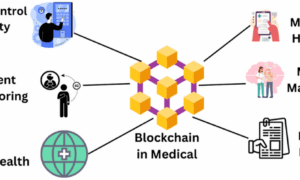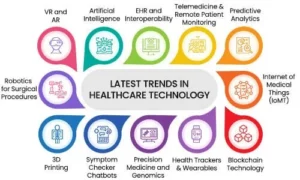Healthcare innovation is a tricky business. While new technologies promise better care and streamlined operations, getting doctors and hospitals to adopt them is another story entirely. Between strict regulations, evidence-based requirements, and busy clinicians who’ve seen countless “game-changing” solutions come and go, the path from idea to implementation is far from simple. Yet some healthcare innovations break through while others fade away. After decades spanning critical care at Mayo Clinic to healthcare CEO roles, Dr. Jon Belsher has figured out what separates success from failure in this demanding market.
Prioritize Proper Planning
Dr. Jon has seen founders’ stumble by treating go-to-market (GTM) planning as a simple exercise, or worse, an afterthought. Some assume they can figure it out as they go. “It’s a risky approach to take,” he says. “It has to be well thought out.” He’s blunt about what happens sans proper planning – you can burn your credibility fast. In healthcare, like other industries, you rarely get a second chance to make a first impression.
Dr. Jon focuses on one non-negotiable requirement: clinical validation. Without it, marketing cannot save the day. “No amount of marketing circumvents the need for clear unequivocal data of the benefits or success of the product or solution,” he says. Doctors aren’t easily swayed by presentations no matter the cost or quality. Having practiced at the Mayo Clinic, Dr. Jon understands they’ll dig into the numbers. The past practice of decisions based on simple anecdotes or word-of-mouth are long gone. “Today, evidence-based medicine (EBM) is the dogma that guides decisions and care,” he explains.
Know Your Audience
Here’s where Dr. Jon sees many founders err – employing the same pitch carte blanche for all parties. Each target group requires a slightly different approach and tailored messaging:
- Doctors will be interested in patient outcome data
- Insurance companies will focus on cost savings and ROI
- Patients will care about ease of use and impact
“The GTM plan or strategy should be tailored differently for payers, or commercial insurers, providers, patients, and regulators,” Dr. Jon points out. One generic message won’t optimize your chances of success.
Keep It Simple
Dr. Jon has also seen CEOs and founders over complicate the pitch. He has sat through numerous presentations where great products or solutions get buried under unnecessary details and tangents. His rule? If you’re promoting something that endeavors to make the healthcare system better and simpler, your pitch or presentation should mirror this simplicity and ease of communication. “If your story is long and/or complex though your product or solution endeavors to be simple, there’s a huge problem there. It’s a red flag.” he warns. From his years as a physician executive in the C-suite, he knows you have very limited time to quickly make your case and have an impact. Make that limited time count.
Despite his support of medtech and healthtech companies, Dr. Jon believes that technology should not get in the way of human-human interaction but instead foster or support it. He’s experienced this problem from both sides of the exam table – as a doctor typing into an electronic medical record (EMR) instead of talking to the patient, and as a patient watching doctors stare at their screens with less attentiveness to his presence and body gestures. “If we’re doing it right with technology today, it’s enabling clinicians to have a more meaningful human interaction with parties at bedside,” he says. “It’s not causing them to get further bogged down and away from the all-important bedside connection .”
Don’t Endeavor to Be the Smartest Person
Dr. Jon learned something crucial while at the Mayo Clinic – nobody has all of the answers. The best outcomes come from working with others, and not trying to be the smartest person in the room. “We all have blind spots no matter how successful or smart we are,” he unequivocally states. The most successful people in healthcare aren’t necessarily the smartest – they’re the ones willing to seek out different viewpoints and adjust course if and when necessary. It’s a team sport. His advice to founders? Find the right support or advice. Build partnerships early. Get feedback from clinicians. Listen to what patients actually want. Have a healthy dose of humility. In a world where most ventures fall short, collaboration can make the difference between success and failure.
Want more straight talk about healthcare innovation? Connect with Dr. Jon Belsher on LinkedIn or visit his website. You can also visit his company, Visura.































